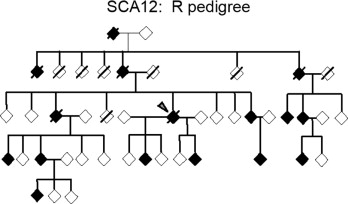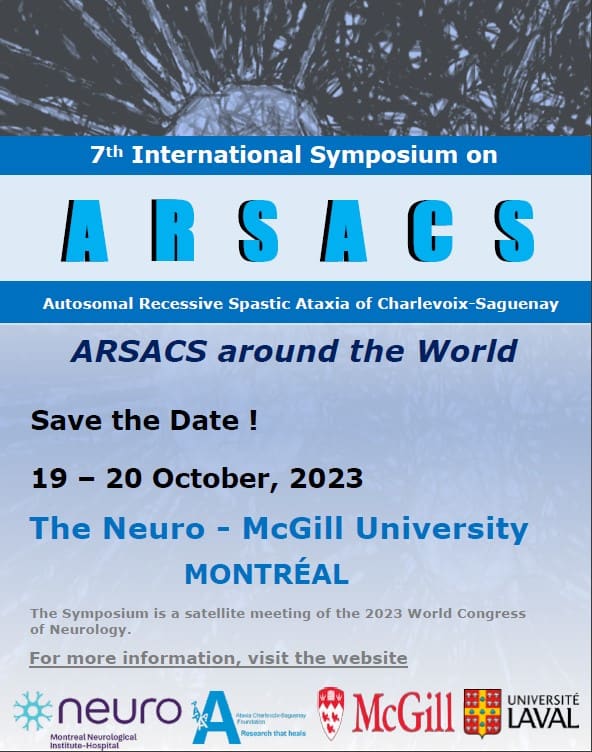Breadcrumb
Ataxias

Spinocerebellar ataxia type 12 (SCA12)
SCA12 is a rare autosomal-dominant ataxia that is caused by a CAG repeat expansion in PPP2R2B, the gene encoding several variants of the PP2A/Bbeta regulatory subunit. Depending on the transcript variant, the expansion may be upstream or included in the transcript of Bbeta1. If included, it may be not translated or translated as a poly-Ser tract. Together with Pan Li at Johns Hopkins, we are studying how the repeat expansion influences PPP2R2B expression and causes pathology utilizing both in vitro and mouse models.

Ataxia of Charlevoix-Saguenay (ARSACS)
Autosomal recessive spastic ataxia of Charlevoix-Saguenay (ARSACS) is one of the most common autosomal-recessive ataxias. Initially identified in the northern Quebec region of Charlevoix-Sagenay, but now diagnosed around the world, ARSACS is caused by loss-of-function mutations in the SACS gene. Its gene product, Sascin, is a gigantic multi-domain protein thought to help properly assemble equally large protein complexes. Unlike many models of human diseases, the Sacs KO mouse is a faithful model of ARSACS, displaying ataxia, muscle weakness, PC loss, and even dementia as we have recently reported (PMID: 38735882). A better understanding of pathogenic mechanisms in the Sacs KO mouse likely has therapeutic implications not only for ARSACS, but for cerebellar disorders in general.
We have generated a large capacity adenoviral vector to express full-length Sacsin in the brain of Sacs KO mice as poof-of-concept for gene therapy. In parallel, we have made a conditional knock-out (cKO) model of ARSACS in order to identify cell types and brain regions responsible for motor and cognitive deficits in ARSACS.